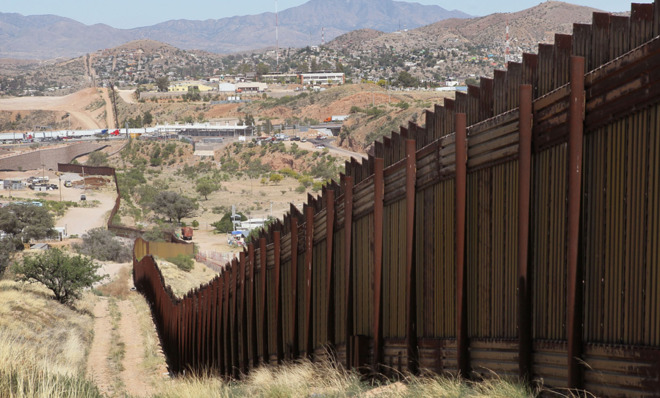How open immigration could double the global economy
But we might never try it...

A free daily email with the biggest news stories of the day – and the best features from TheWeek.com
You are now subscribed
Your newsletter sign-up was successful
On Sunday's This Week, Facebook founder Mark Zuckerberg sat down with David Wright to champion the cause of immigration reform, calling it "one of the biggest civil rights issues of our time."
I happen to agree with Zuckerberg that immigration reform is a deeply moral issue. But even if you don't, I encourage you to look at the economic case because it's very compelling in a different way.
Many economists believe that restricted migration is a very large policy error. A 2011 study by Madeleine Zavodny of the American Enterprise Institute found that immigrants typically pay much more in taxes than they receive in government services:
The Week
Escape your echo chamber. Get the facts behind the news, plus analysis from multiple perspectives.

Sign up for The Week's Free Newsletters
From our morning news briefing to a weekly Good News Newsletter, get the best of The Week delivered directly to your inbox.
From our morning news briefing to a weekly Good News Newsletter, get the best of The Week delivered directly to your inbox.
[American Enterprise Institute]
The study also found that immigrant workers created jobs for the native population, rather than taking them away. Each additional 100 H1-B workers were found to have generated 183 new jobs for the native population, and each 100 additional H2-B workers generated 464 new jobs for the native population. And even undocumented immigrants pay more taxes than they receive in benefits, according to a 2007 study.
With an aging population increasingly retiring and beginning to draw more heavily on government services like Medicare and Social Security, it makes fiscal sense for America to let in more young tax-paying immigrants who will create jobs and boost government finances.
But many economists want to go further and move toward a world of open borders and totally unrestricted immigration.
A free daily email with the biggest news stories of the day – and the best features from TheWeek.com
Why? We live in a world where job opportunities are spread out across the face of the globe. By giving individuals the freedom of movement to work anywhere, we let people specialize in what they are best at.
According to the paper "Economics and Emigration: Trillion-Dollar Bills on the Sidewalk?" (2011) by Michael Clemens at the Center for Global Development, open borders could lead to a one-time boost in world economic activity of about 50 to 150 percent. That would be enough to lift billions out of poverty and it could come about simply from lifting restrictions on human movement and letting people find their niche in the global economy.
Of course, these are just estimates. In reality, there's no guarantee we would see such a boost because the real world doesn't always work the way economists think it does. People may not be so willing to relocate for social, cultural, or familial reasons, for example. At the same time, cultural opposition toward immigrants in most parts of the world remains firm — 45 percent of people in a recent global poll believed that immigration had a negative impact on their country, compared with just 21 percent who believed it had a positive impact.
Nevertheless, there are glimmers of a future where immigration is more accepted and open. The internet, for instance, is helping connect people by spreading news and ideas around the world in minutes or hours instead of days or weeks. English is becoming a transnational language, facilitating communication across countries and continents. And we are seeing the rise of transnational cultures, which are building commonalities around shared values and experiences. All of these things are probably a necessary prerequisite for a more open, borderless world and keep me optimistic about its chances of being realized.
John Aziz is the economics and business correspondent at TheWeek.com. He is also an associate editor at Pieria.co.uk. Previously his work has appeared on Business Insider, Zero Hedge, and Noahpinion.
-
 How the FCC’s ‘equal time’ rule works
How the FCC’s ‘equal time’ rule worksIn the Spotlight The law is at the heart of the Colbert-CBS conflict
-
 What is the endgame in the DHS shutdown?
What is the endgame in the DHS shutdown?Today’s Big Question Democrats want to rein in ICE’s immigration crackdown
-
 ‘Poor time management isn’t just an inconvenience’
‘Poor time management isn’t just an inconvenience’Instant Opinion Opinion, comment and editorials of the day